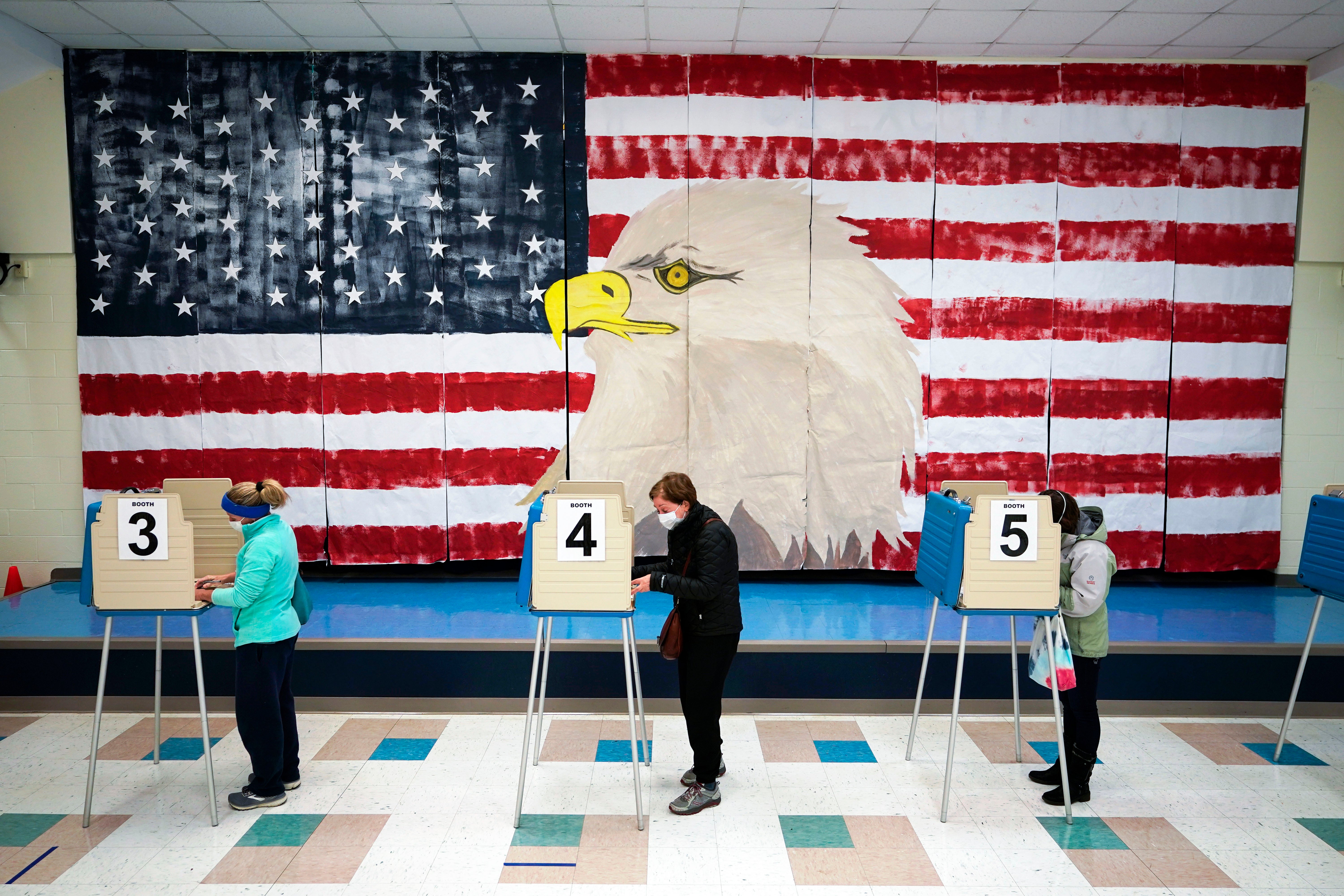EXPLAINER: The need-to-know basics for the U.S. midterm
If you’re tuning in now to Election Day in the U.S., voting in the midterm election ends when polls close on Tuesday

Your support helps us to tell the story
From reproductive rights to climate change to Big Tech, The Independent is on the ground when the story is developing. Whether it's investigating the financials of Elon Musk's pro-Trump PAC or producing our latest documentary, 'The A Word', which shines a light on the American women fighting for reproductive rights, we know how important it is to parse out the facts from the messaging.
At such a critical moment in US history, we need reporters on the ground. Your donation allows us to keep sending journalists to speak to both sides of the story.
The Independent is trusted by Americans across the entire political spectrum. And unlike many other quality news outlets, we choose not to lock Americans out of our reporting and analysis with paywalls. We believe quality journalism should be available to everyone, paid for by those who can afford it.
Your support makes all the difference.If you're tuning in now to Election Day in the United States, voting in the midterm election ends when polls close on Tuesday.
Millions of Americans have already cast ballots either early in person or by mail, with millions more set to vote in person at their polling places.
Here's a primer on the 2022 election to get you up to speed as the country waits to learn who'll be in charge in Congress come January.
WHICH RACES ARE ON THE BALLOT?
Every U.S. House seat is up for election this year, along with about a third of the U.S. Senate. On the line is control of both houses of Congress, currently under Democratic leadership.
Voters are also electing governors in most of the states this year. They'll be in office in 2024 when the next presidential election happens and could affect election laws or vote certifications.
Also on the ballot are numerous state legislative officials and local authorities.
HOW DOES COUNTING WORK?
The United States has a highly decentralized election system, with local officials responsible for carrying out the balloting and counting returns while states certify results.
Not all states vote the same, either: Some carry out voting only by mail while others have a mix of in-person and mail voting. Others also have early in-person voting periods.
HOW LONG COULD IT TAKE?
There is no federal government agency that tells the country who has won the election right away, and different states count ballots at different times. That means it could take longer to declare a winner in some spots. Varying rules on when recounts or runoff elections might be required could also factor in.
Some states like Pennsylvania and Wisconsin, for example, don't allow officials to begin validating mail-in votes until Election Day. Other states allow grace periods for votes to be counted as long as they were postmarked by Election Day.
All of this means that we likely will not know who won every race on election night.
The Associated Press calls races when it determines a clear victor. But no state releases complete and final results on election night, nor have they ever done so in modern history, according to experts.
WHAT ARE POSSIBLE OUTCOMES AND WHAT WOULD THAT MEAN?
Democrats and Republicans could split control of the House and Senate or one party could capture both chambers. Democrats have held the House since the 2018 election during former President Donald Trump's administration.
Buoyed by voter frustration over the economy and by favorable redistricting, Republicans are favored to win the House. A Republican-led chamber would mean President Joe Biden's agenda gets halted.
The Senate, which Democrats hold with the slimmest of advantages, could go either way. At stake is control over moving forward presidential appointments, like judges and Cabinet officials, as well as legislation.
As chief executive, Biden will retain his veto power regardless of how control of Congress turns out.
___
AP journalist Mike Catalini can be reached at https://twitter.com/mikecatalini
___
Check out https://apnews.com/hub/explaining-the-elections to learn more about the issues and factors at play in the 2022 midterm elections. Follow AP’s coverage of the 2022 midterm elections at: https://apnews.com/hub/2022-midterm-elections